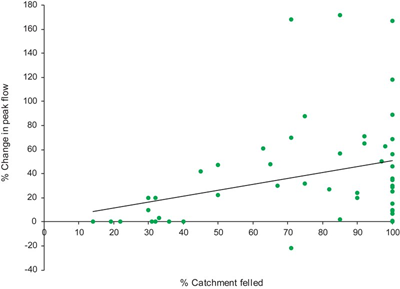
Today 8 February is the birthday (the 204th) of my favourite philosopher John Ruskin. It's hard to articulate the scale of the influence he's had on my life - never mind society - but here's an appropriately chaotic thread to try. 🧵 

I discovered Ruskin visiting his museum-home Brantwood in my early 20s. I noted the famous quotes, haunted the gardens with my sketchbook, bought a cheap paperback edition of selected writings in the shop. Here was someone telling the truth across the centuries to me. 





For many years after that, I worked to see the world like Ruskin. I read his writings - but didn't study them. I was too busy looking and sketching like Ruskin; trying to write in the captivating style of Ruskin. I aspired to be a polymath like Ruskin. 





Bryophytes? It was Ruskin showed me those. He showed it's ok - essential in fact - to recognise that we are not detached scientists, but observing the world from the inside. We choose our values, we choose where to see beauty and what to love, and it's vital we choose right. 







For several years Paul O'Keefe performed Ruskin's four "Edinburgh Lectures" (one of his demolitions of the middle classes) in the Scottish National Gallery in the Fringe. I hope he might do it again. I took time off work to see them. They are brilliant - and hilariously funny. 

I learned the power of a good PowerPoint from these re-enactments. Ruskin used poster-sized illustrations - like these where he discusses the art of olden times and then unveils the pinnacle of perfection of modern architectural decoration of which Edinburgh was so proud... 





Edinburgh changed its style after the "Edinburgh lectures". This is one of the first - and my favourite - examples, a warehouse in West Register St by a businessman who had clearly been studying Ruskin's "Stones of Venice". (Ruskin got me thinking about addressing business too). 





The businessman was part of the huge Edinburgh papermaking industry - reshaping the Pentlands - due to the unparalleled global demand for these. Ruskin grew up reading Walter Scott's novels and the chaotic, rich, polymathic connection is evident. I devoured them too. 

In my early Ruskin phase I made a particularly sanctimonious illumination of a famous passage from "The Nature of the Gothic". But part of being a Ruskin disciple is writing wry footnotes on the enthusiastic efforts of one's youth. This footnoted passage particularly struck me... 



"The English word "Firmament" is obscure and useless" says Ruskin, arguing that when we look out of our office window, we simply see - heaven. This passage nagged me for years. 

Every time I heard people clergy usually) talking about God, I heard, 'The English word "God" is obscure and useless'. Ruskin lost his faith, and went mad, and I realised it was imperative to be able to articulate mine. It took a long time.
https://twitter.com/eleanormharris/status/1606918495387938817?t=GUFt169ApNwr8k0vr8_iWA&s=19
Ruskin inspired many things - the British Labour movement (which was much more Ruskinian than Marxist), William Morris - these deeply influenced my art and thought too. 







I can't find the quote, but an architectural historian wrote that Ruskin couldn't admire a building without seeing it as a turning point in civilization. He meant it snidely, but I celebrate it. There are so many great and sacred confluences in human history, and our own. 

I'll end with my favourite piece of Ruskin writing of all - from that cheap edition - delivered in Tunbridge Wells of all places. He starts with the rusty stain that has to keep being cleaned off their elegant fountain, and uses it to talk about - well - everything. 

In the section on iron in nature, Ruskin shows how, by paying attention to colour, we can see every day that even the rocks are not "other" to us, but elementally connected: our brothers and sisters in the healthy blush of iron ♥️ 



Via wrought iron, ploughs, daggers and fetters, Ruskin explores the iron-y symbolism of how we treat our fellow humans. I couldn't stop thinking about this as I was digging up brown earths and ironpans with our forestry team. 



"No one ever did a truer thing than to see something, and tell what he saw in a plain way. Hundreds can speak, for one who can think, but thousands can think, for one who can see. To see clearly is poetry, philosophy, and religion, all in one." John Ruskin, b. 8 Feb 1819.
🧵end
🧵end

@threadreaderapp unroll
• • •
Missing some Tweet in this thread? You can try to
force a refresh













